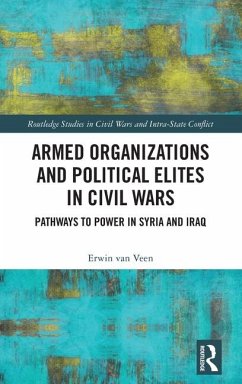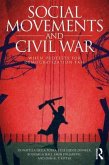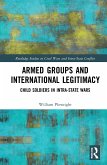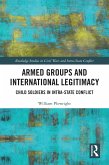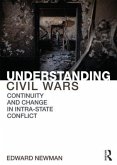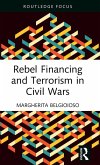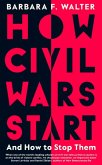This book analyses under what conditions, and with what developmental effects, armed organizations shift their 'coercive profile' during civil wars, with a focus on the recent conflicts in Syria and Iraq.
The work begins with an operationalisation of the term 'political settlement', focusing on how power is organized in fragile and conflict-affected countries, and then uses this operationalization to analyse the political settlements of contemporary Syria and Iraq, including their breakdown and transformation during recent civil wars (of 2011-today in Syria and 2014-17 in Iraq). It subsequently examines why and how elite factions have used armed organizations in times of conflict. This approach links an understanding of the broad evolution of power relations at the national level with the specific effects of the use of armed organizations on such relations. It argues for a shift from assigning fixed labels to armed organizations during civil wars to studying their coercive profile in a dynamic fashion, i.e. how armed organizations behave in terms of their use of threats and coercive force. The book introduces five profiles of coercive behaviour that demonstrate how the same organization can behave very differently at various points in time. One of these, the 'hybrid coercive profile', fills a gap in the existing civil war typology of organized armed violence by opening up the possibility of elite factions deliberately combining collaborative and competitive modes of behaviour. As an evidence base, the book provides in-depth analysis of the origins, evolution and operations of four armed organizations that have acted under a hybrid coercive profile during the Syrian and Iraqi civil wars: the Syrian Kurdish People's Defence Forces, the Eagles of the Whirlwind of the Syrian Social Nationalist Party, the Iraqi Kurdish Peshmerga and the Badr Organization. By connecting the concepts of political settlement and civil war, and applying them to specificarmed organizations operating in Syria and Iraq, the book offers new insights into this nexus.
This book will be of much interest to students of civil wars, conflict studies, Middle Eastern Studies and International Relations.
The work begins with an operationalisation of the term 'political settlement', focusing on how power is organized in fragile and conflict-affected countries, and then uses this operationalization to analyse the political settlements of contemporary Syria and Iraq, including their breakdown and transformation during recent civil wars (of 2011-today in Syria and 2014-17 in Iraq). It subsequently examines why and how elite factions have used armed organizations in times of conflict. This approach links an understanding of the broad evolution of power relations at the national level with the specific effects of the use of armed organizations on such relations. It argues for a shift from assigning fixed labels to armed organizations during civil wars to studying their coercive profile in a dynamic fashion, i.e. how armed organizations behave in terms of their use of threats and coercive force. The book introduces five profiles of coercive behaviour that demonstrate how the same organization can behave very differently at various points in time. One of these, the 'hybrid coercive profile', fills a gap in the existing civil war typology of organized armed violence by opening up the possibility of elite factions deliberately combining collaborative and competitive modes of behaviour. As an evidence base, the book provides in-depth analysis of the origins, evolution and operations of four armed organizations that have acted under a hybrid coercive profile during the Syrian and Iraqi civil wars: the Syrian Kurdish People's Defence Forces, the Eagles of the Whirlwind of the Syrian Social Nationalist Party, the Iraqi Kurdish Peshmerga and the Badr Organization. By connecting the concepts of political settlement and civil war, and applying them to specificarmed organizations operating in Syria and Iraq, the book offers new insights into this nexus.
This book will be of much interest to students of civil wars, conflict studies, Middle Eastern Studies and International Relations.

